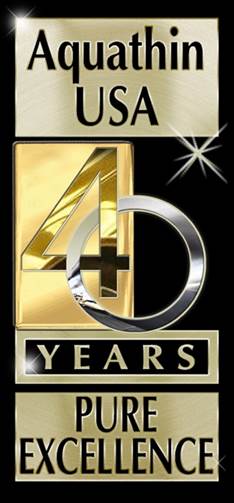Lawsuit wants farms to follow strict clean water rules
"AquathinOP-ED Commentary"
The 2 minute quick read article provides an excellent example concerning pollution from farm runoff. Although the article is from California, the issues are pandemic. California is at the forefront of what will be occurring all over the world. The point---we cannot wait for the governments of the world to protect our water, that is why we need to take care ourselves TODAY!
Lawsuit wants farms to follow strict clean water rules
SAN FRANCISCO — Area environmentalists who claim pesticides and fertilizers from Central Valley farms pollute San Francisco Bay filed a lawsuit in Supreme Court to force farmers to follow the same clean water laws as factories and other businesses.
If successful, the suit would require California officials to become the first in the nation to apply water pollution regulations to irrigation and stormwater running off agricultural fields, the San Jose Mercury News reported.
Tess Dunham, director of water resources for the California Farm Bureau Federation, said agriculture will go out of business if the industry has to comply with increasing regulations, the newspaper reported. Voluntary measures, rather than enforceable laws, are a more realistic approach, he said.
Agricultural discharges are a massive source of water pollution, said Jonathan Kaplan, program director at Baykeeper, a San Francisco environmental group that is a party to the suit filed yesterday, 21 February, according to the newspaper.
When Congress passed the Clean Water Act in 1972, exempting farming, the US Environmental Protection Agency (EPA) classified two-thirds of the nation's lakes and rivers as unsafe for swimming or fishing. Now that industries have been heavily regulated, the largest source of water pollution, according to the EPA, is runoff from farms, urban roads, backyard pesticide use and erosion from logging, said the article.
California's main clean water law, the Porter-Cologne Act, allows farm water to be regulated as a pollutant. But in 1982, the Central Valley Water Quality Control Board gave farmers a 20-year waiver, saying there was insufficient evidence that runoff was a major source of water pollution, the newspaper said.
Environmentalists said new science makes that ruling obsolete. The lawsuit filed by Baykeeper, Deltakeeper and the California Public Interest Research Group against the Central Valley Water Quality Control Board seeks to end the farm exemption. The suit, filed in Sacramento Superior Court, seeks to make farmers obtain clean water permits, monitor their runoff and face fines for violations the same way that sewage plants and heavy industry have since the early 1970s. The article said farmers would be forced to use fewer pesticides, or to build holding ponds to capture irrigation water and allow pesticides to evaporate before releasing the water into creeks and streams.
The article said the showdown over agricultural runoff is seen as a declaration of war by the state's $27 billion agricultural industry, and could affect seven million acres of farms. Farm groups said a new layer of rules would harm an industry already ailing because of low crop prices and competition from overseas.
Rivers and streams across hundreds of miles of the Central Valley drain into San Francisco Bay and its delta. A vast system of marshes and islands, the delta provides drinking water for two-thirds of California residents and a wildlife habitat, the article said. Private and government studies in recent years have found elevated levels of farm chemicals such as diazinon and chlorpyrifos in the two main rivers that empty into the delta, the San Joaquin and the Sacramento. The chemicals, according to the article, can harm invertebrates that form the basis of the food chain for fish and other animals, and can contaminate drinking water supplies, requiring expensive treatment.
Water board officials called Thursday's lawsuit premature, the newspaper reported. Even though the Central Valley board and the state water board denied a request last month from 67 environmental groups to end the 20-year exemption for farms, a board spokesman said hearings still are planned for this year and a final decision is yet to be made.
FOR THE BEST TASTE IN LIFE
Think Aquathin...AquathinK!!
Edited from Tech Bank 2/22/02


